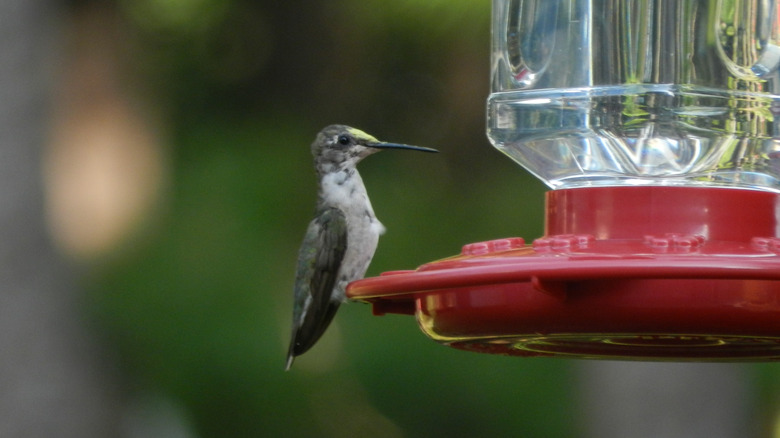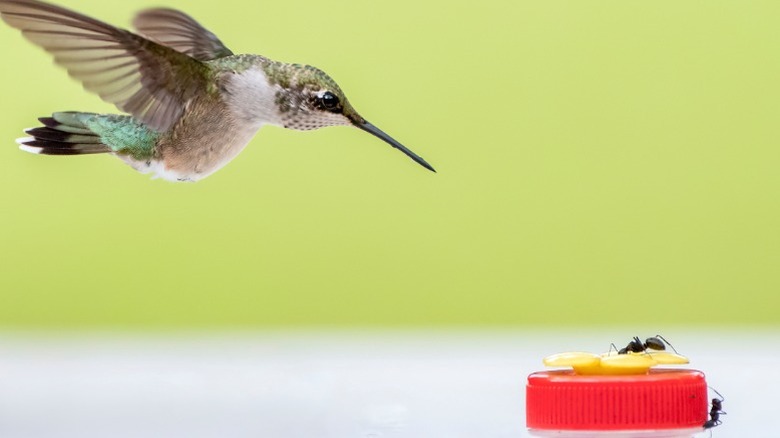Keep Ants Off Your Hummingbird Feeder With Two Simple Ingredients
Need a DIY hack to deal with ants infiltrating your hummingbird feeder? It doesn't take long for pesky ants to discover the sugar water in an outdoor bird feeder, eventually coming in to contaminate and clog it and drive away more desirable visitors. But this simple hack making the rounds on social media suggests blocking their path by using two common household items — peppermint essential oil and olive oil. The peppermint oil is a proven repellent against various types of ants, while the olive oil creates a surface they struggle to cross. The trick is applying a mixture of the two in the right places without interfering with the nectar or the hummingbirds. Natural deterrents can be effective if used with care, but it's important not to coat areas where birds feed.
What you'll need is some pure peppermint essential oil, a bit of olive oil, and a clean rag or cotton swab. A little goes a long way; just a drop or two mixed together provides enough to do the trick on most hummingbird feeders. Placement also matters, since you'll create several sneaky ways that ants can get to your hummingbird feeders if you put them too close to branches or other climbing surfaces. Keeping your setup in an open spot (ideally shaded to preserve nectar freshness) will reduce the chances of unwanted visitors. If you're already experimenting with feeder placement, you might consider turning your balcony into a hummingbird oasis, which will further help you make a welcoming space for birds while keeping pests in check.
How to apply the oil hack to your hummingbird feeder
To get the most out of this hack for your hummingbird feeder, just mix a few drops of peppermint oil into a small amount of olive oil, then carefully rub it onto the hook or wire where the feeder hangs. You can also apply it to the bottom of the feeder's base. But be careful to avoid the feeding ports for the birds or anywhere that they might make contact, since oil may discourage hummingbirds or even affect their health and ability to preen. After you've applied the mixture, give the feeder a few minutes to settle before rehanging. What you should notice over the next day or two is that ants struggle to keep their grip on the treated surfaces, and the sharp peppermint aroma makes the area less inviting for them.
However, because weather can wash away the mixture, you may need to reapply after rain or when you see the slick surface drying out. And keeping up with proper care while avoiding common hummingbird feeder cleaning mistakes is just as important as applying the hack itself. Regular cleaning prevents sugar buildup that could attract pests, and repositioning the feeder can break ant trails before they form. Together, these simple adjustments create a more reliable feeding station where hummingbirds thrive and ants are left scrambling.

